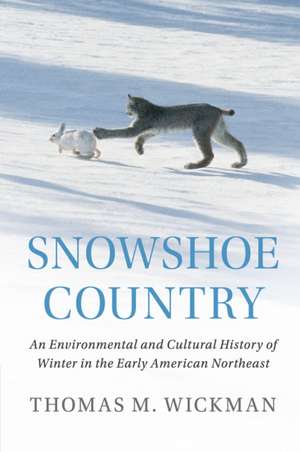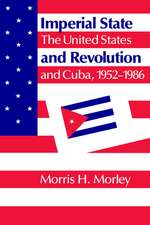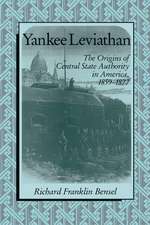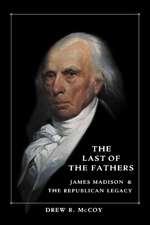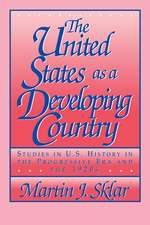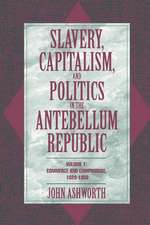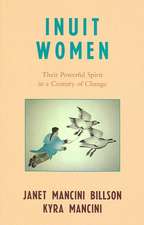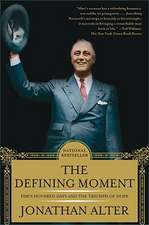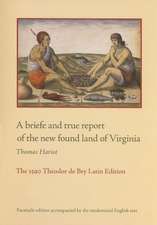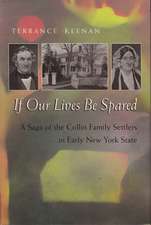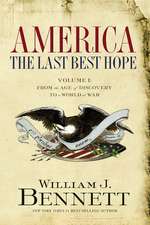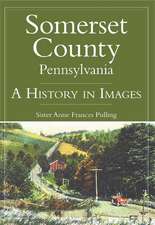Snowshoe Country: An Environmental and Cultural History of Winter in the Early American Northeast: Studies in Environment and History
Autor Thomas M. Wickmanen Limba Engleză Paperback – 23 oct 2019
| Toate formatele și edițiile | Preț | Express |
|---|---|---|
| Paperback (1) | 227.33 lei 6-8 săpt. | |
| Cambridge University Press – 23 oct 2019 | 227.33 lei 6-8 săpt. | |
| Hardback (1) | 438.06 lei 6-8 săpt. | |
| Cambridge University Press – 19 sep 2018 | 438.06 lei 6-8 săpt. |
Din seria Studies in Environment and History
-
 Preț: 231.59 lei
Preț: 231.59 lei -
 Preț: 191.12 lei
Preț: 191.12 lei -
 Preț: 243.02 lei
Preț: 243.02 lei -
 Preț: 188.70 lei
Preț: 188.70 lei -
 Preț: 204.55 lei
Preț: 204.55 lei -
 Preț: 147.64 lei
Preț: 147.64 lei -
 Preț: 201.67 lei
Preț: 201.67 lei -
 Preț: 137.74 lei
Preț: 137.74 lei - 14%
 Preț: 771.56 lei
Preț: 771.56 lei -
 Preț: 231.54 lei
Preț: 231.54 lei -
 Preț: 156.89 lei
Preț: 156.89 lei -
 Preț: 239.72 lei
Preț: 239.72 lei -
 Preț: 200.99 lei
Preț: 200.99 lei -
 Preț: 206.52 lei
Preț: 206.52 lei -
 Preț: 199.05 lei
Preț: 199.05 lei -
 Preț: 431.15 lei
Preț: 431.15 lei -
 Preț: 322.04 lei
Preț: 322.04 lei -
 Preț: 204.48 lei
Preț: 204.48 lei -
 Preț: 299.23 lei
Preț: 299.23 lei -
 Preț: 332.81 lei
Preț: 332.81 lei -
 Preț: 239.55 lei
Preț: 239.55 lei -
 Preț: 225.79 lei
Preț: 225.79 lei -
 Preț: 285.93 lei
Preț: 285.93 lei -
 Preț: 270.25 lei
Preț: 270.25 lei -
 Preț: 208.68 lei
Preț: 208.68 lei -
 Preț: 275.85 lei
Preț: 275.85 lei -
 Preț: 323.05 lei
Preț: 323.05 lei -
 Preț: 234.83 lei
Preț: 234.83 lei -
 Preț: 272.97 lei
Preț: 272.97 lei - 11%
 Preț: 528.82 lei
Preț: 528.82 lei - 11%
 Preț: 432.64 lei
Preț: 432.64 lei -
 Preț: 252.69 lei
Preț: 252.69 lei -
 Preț: 278.72 lei
Preț: 278.72 lei - 14%
 Preț: 756.70 lei
Preț: 756.70 lei -
 Preț: 264.09 lei
Preț: 264.09 lei -
 Preț: 440.76 lei
Preț: 440.76 lei
Preț: 227.33 lei
Nou
Puncte Express: 341
Preț estimativ în valută:
43.50€ • 45.36$ • 36.16£
43.50€ • 45.36$ • 36.16£
Carte tipărită la comandă
Livrare economică 20 martie-03 aprilie
Preluare comenzi: 021 569.72.76
Specificații
ISBN-13: 9781108445542
ISBN-10: 1108445543
Pagini: 326
Ilustrații: 13 b/w illus.
Dimensiuni: 153 x 230 x 21 mm
Greutate: 0.48 kg
Editura: Cambridge University Press
Colecția Cambridge University Press
Seria Studies in Environment and History
Locul publicării:New York, United States
ISBN-10: 1108445543
Pagini: 326
Ilustrații: 13 b/w illus.
Dimensiuni: 153 x 230 x 21 mm
Greutate: 0.48 kg
Editura: Cambridge University Press
Colecția Cambridge University Press
Seria Studies in Environment and History
Locul publicării:New York, United States
Cuprins
Introduction; 1. Snowshoes and indigenous winter ecologies; 2. Overwintering, or when colonists stayed year-round; 3. Seasons of violence and routes to safety in King Philip's war; 4. Frigid nights and icy days in colonial Boston; 5. Wabanaki winter knowledge in the coldest years; 6. Snowshoe men and a new season of want; 7. The idea of apolitical New England winters; 8. Seasons and survivance; Conclusion.
Recenzii
'Wickman's Snowshoe Country presents a stunning reappraisal of seventeenth-century New England's extreme winter cold and its role in balancing between 'Indians' winter power and Europeans' hesitant adaptation.' Karen Ordahl Kupperman, New York University
'By contrasting the experiences of the Wabanaki people and their English invaders during a time of climate change, Thomas M. Wickman beautifully demonstrates that climate history may be very instructive for us, even as he makes clear that, in the context of settler colonialism (then or now), 'us' is a complicated if not contested category.' Joyce Chaplin, James Duncan Phillips Professor of Early American History, Harvard University, Massachusetts
'Wabnakis and English lived in a world where the snowshoe was as important as the plough. As Thomas M. Wickman reveals in this pathbreaking book, snow and cold mattered in ways that historians have forgotten or ignored. Not since William Cronon's Changes in the Land have we had such a subtle study of humans and environment in the northeast. Winter has arrived in the history of early New England.' Peter Mancall, University of Southern California
'Snowshoe Country restores vital Northeastern winter lands to the center of Indigenous history, settler colonialism, and environmental studies of New England. Thomas M. Wickman elucidates complex winter ecologies and adaptations, delving deeply into a diverse documentary record, the archive of Indigenous winter knowledge and technologies, and enduring literatures of survivance. A must read for anyone interested in colonial American history or climate change.' Lisa Brooks, Amherst College, Massachusetts, and author of Our Beloved Kin: A New History of King Philip's War
'Wickman describes how early colonists learned to use snowshoes in deep drifts that stopped horses only after they realized that ignorance of their use gave Native peoples a decided military advantage. … Ice and snow were not regarded as a nuisance by the Abenakis and other Native peoples but as an integral part of cultural identity; for them, training in the manufacture and use of snowshoes began at an early age. Wickman describes how command of snowshoes allowed the Abanakis to make winter, with its snows that could reach a depth of three feet, a 'season of power' until English adaptation of snowshoes around 1700 nullified that advantage. Intricately woven, intensively researched, and well written, Wickman's account sets a high bar for history that illustrates the formative role that weather and climate play in human events. Highly recommended.' B. E. Johansen, Choice
'… Thomas M. Wickman's Snowshoe Country is an elegant, well-researched monograph … is impressively researched, with extensive use of English, French, and Native American sources. This is a welcome addition to the growing corpus of scholarship on the environmental history of early America.' Michael Gunther, Journal of American History
'… this is a very interesting and enlightening addition to the studies of colonial New England, and well worth the time to read and enjoy.' Thomas Rumney, Journal of Historical Geography
'[Wickman's] thoughtful and grave engagement with the paramount issue of our time is profoundly admirable. Snowshoe Country will provoke readers to look at the winter with new concern - and respect.' Claire Campbell, The William and Mary Quarterly
'Wickman draws from a wide range of scholarship in the environmental humanities, postcolonial literary criticism, historical linguistics, and indigenous theory. He deftly integrates material evidence … with his interpretation of such textual sources as colonial records, captivity narratives of hypothermia and frostbite, dictionaries, oral history, and poetry. As a result, he offers bracing reappraisals of the Pequot War (Chapter 2), King Philip's War (Chapter 3), and the four Anglo-Wabanaki Wars (Chapters 5 and 6).' Anya Zilberstein, Journal of Interdisciplinary History
'… Wickman has written a well-organized and imaginative book.' Ted Steinberg, Early American Literature
'By contrasting the experiences of the Wabanaki people and their English invaders during a time of climate change, Thomas M. Wickman beautifully demonstrates that climate history may be very instructive for us, even as he makes clear that, in the context of settler colonialism (then or now), 'us' is a complicated if not contested category.' Joyce Chaplin, James Duncan Phillips Professor of Early American History, Harvard University, Massachusetts
'Wabnakis and English lived in a world where the snowshoe was as important as the plough. As Thomas M. Wickman reveals in this pathbreaking book, snow and cold mattered in ways that historians have forgotten or ignored. Not since William Cronon's Changes in the Land have we had such a subtle study of humans and environment in the northeast. Winter has arrived in the history of early New England.' Peter Mancall, University of Southern California
'Snowshoe Country restores vital Northeastern winter lands to the center of Indigenous history, settler colonialism, and environmental studies of New England. Thomas M. Wickman elucidates complex winter ecologies and adaptations, delving deeply into a diverse documentary record, the archive of Indigenous winter knowledge and technologies, and enduring literatures of survivance. A must read for anyone interested in colonial American history or climate change.' Lisa Brooks, Amherst College, Massachusetts, and author of Our Beloved Kin: A New History of King Philip's War
'Wickman describes how early colonists learned to use snowshoes in deep drifts that stopped horses only after they realized that ignorance of their use gave Native peoples a decided military advantage. … Ice and snow were not regarded as a nuisance by the Abenakis and other Native peoples but as an integral part of cultural identity; for them, training in the manufacture and use of snowshoes began at an early age. Wickman describes how command of snowshoes allowed the Abanakis to make winter, with its snows that could reach a depth of three feet, a 'season of power' until English adaptation of snowshoes around 1700 nullified that advantage. Intricately woven, intensively researched, and well written, Wickman's account sets a high bar for history that illustrates the formative role that weather and climate play in human events. Highly recommended.' B. E. Johansen, Choice
'… Thomas M. Wickman's Snowshoe Country is an elegant, well-researched monograph … is impressively researched, with extensive use of English, French, and Native American sources. This is a welcome addition to the growing corpus of scholarship on the environmental history of early America.' Michael Gunther, Journal of American History
'… this is a very interesting and enlightening addition to the studies of colonial New England, and well worth the time to read and enjoy.' Thomas Rumney, Journal of Historical Geography
'[Wickman's] thoughtful and grave engagement with the paramount issue of our time is profoundly admirable. Snowshoe Country will provoke readers to look at the winter with new concern - and respect.' Claire Campbell, The William and Mary Quarterly
'Wickman draws from a wide range of scholarship in the environmental humanities, postcolonial literary criticism, historical linguistics, and indigenous theory. He deftly integrates material evidence … with his interpretation of such textual sources as colonial records, captivity narratives of hypothermia and frostbite, dictionaries, oral history, and poetry. As a result, he offers bracing reappraisals of the Pequot War (Chapter 2), King Philip's War (Chapter 3), and the four Anglo-Wabanaki Wars (Chapters 5 and 6).' Anya Zilberstein, Journal of Interdisciplinary History
'… Wickman has written a well-organized and imaginative book.' Ted Steinberg, Early American Literature
Notă biografică
Descriere
An environmental and cultural history of winter in the colonial Northeast, examining indigenous and settler knowledge of life in the cold.
